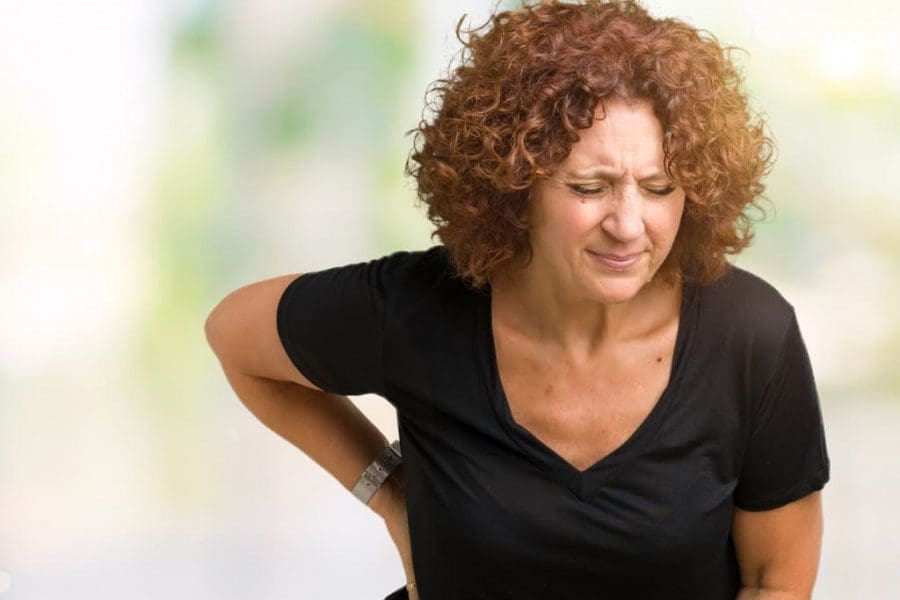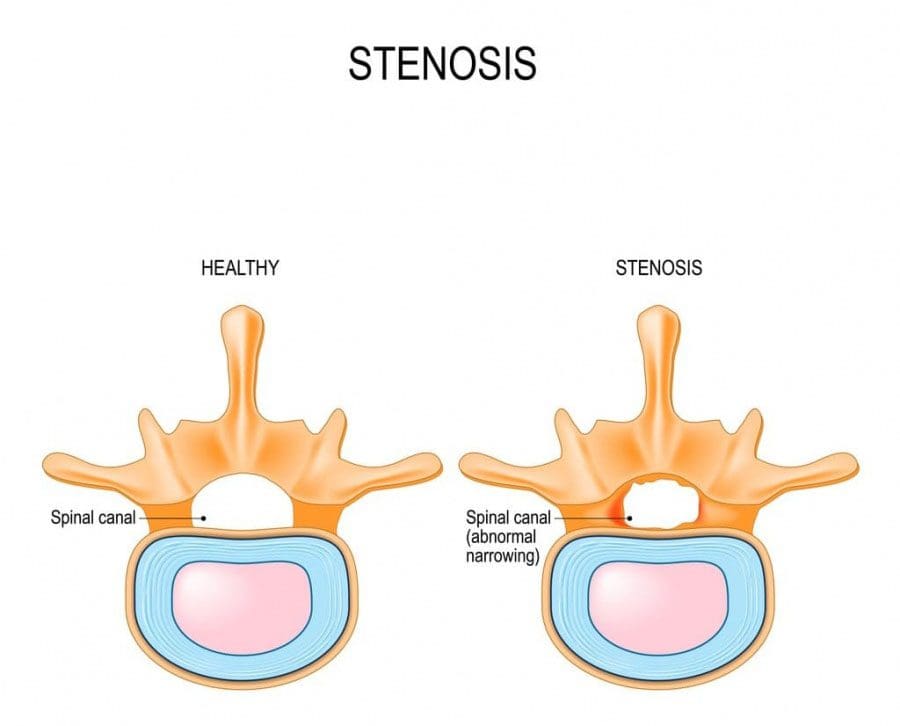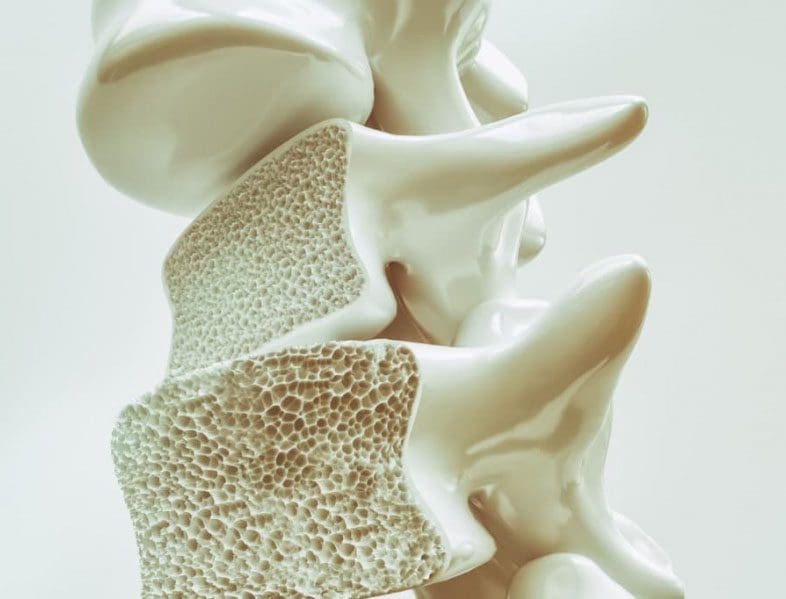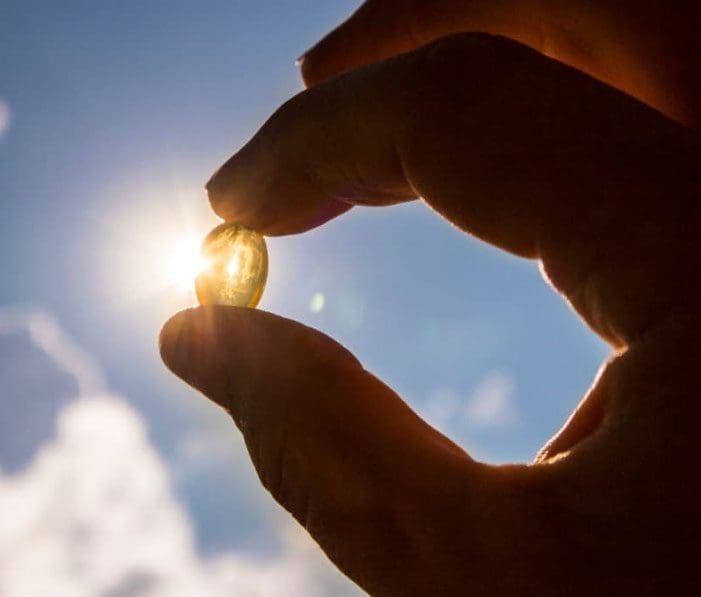A February 2020 study explored the relationship between low back pain and menopause. Hormones and vitamin D play a role. Vitamin D deficiency is related to increased lower back pain and degenerative disc disease in postmenopausal women. Decreasing estrogen levels can also drop levels of vitamin D, which can be downright painful if left unaddressed.
Menopause:
- Hot flashes
- Mood swings
- Sleep issues
- Libido changes
Degenerative Disc Disease
In between the vertebra are fibrous discs that are the shock absorbers for the spine. These discs also support and stabilize the spine, which allows you to move freely pain-free. The health of the spine is a vital part of well-being and provides the ability to bend, lift, twist, and perform normal activities without pain.With the passage of time, the discs start to dry out and lose their flexibility and elasticity. When the discs dry out, known as desiccation is a natural process that happens as we age and does not always cause pain symptoms. The discs become thinner and less able to absorb shock that can lead to pain and stiff movement. The loss of elasticity and height in the discs is known as degenerative disc disease.
Stenosis/Compression
With degenerative disc disease, sometimes the body tries to compensate for the loss of stability by producing more bone to stabilize the spine. This causes bone growth/s, called bone spurs or osteophytes. These can crowd the spinal canal, which is a condition called stenosis.Stenosis places pressure on the nerve roots that branch off the spinal cord.
The symptoms of this compression can present with:
- Pins and needles sensations
- Muscle spasms
- Decreased sensation to touch
- Weakness and pain in the back or that radiate down the arms or legs.
Treatments for degenerative disc disease include physical therapies and surgery. Most cases are treatable without surgery by utilizing physical therapy, occupational therapy, strength/flexibility exercises, injections, and supplements. Surgery could be considered to make more room in the spinal canal, relieve nerve compression, and reduce pain.
Vitamin D and Bone Health
Vitamin D has multiple functions in the body. It's produced by the body when exposed to sunlight and is also found in certain foods and supplements. One function of vitamin D involves bone health support. The body needs vitamin D to absorb calcium and phosphorus, which are essential for bone production. Calcium is stored inside the bones.When there is a deficiency in calcium, the body breaks down the bone/s and takes/pulls the calcium back into the blood. Inadequate vitamin D means the body is not able to absorb enough calcium and cannot prevent the bones from being broken down. Vitamin D deficiency at an early age can cause low bone density along with diseases like rickets, osteopenia, and osteoporosis. Osteoporosis is a condition where the bone gradually weakens and breaks easily.
It can cause vertebral compression fractures, where the vertebrae crack because the bone tissue is not strong enough to support the body’s weight and resist gravity.
Two causes of osteoporosis are nutritional deficiencies and hormonal imbalances, like low estrogen production after menopause. Proper vitamin D/calcium intake is essential for preventing and reducing bone loss that can lead to these conditions and increased lower back pain.
Estrogen and Bone/Spine Health
Estrogen plays a role in male and female bone health. Cells called osteoblasts help in the production of bone are highly active. Estrogen helps slow the breakdown of bones and promotes bone growth. A drop in estrogen over time compromises the health of bones. Individuals with chronic hormone imbalances and postmenopausal women are frequently affected by bone disease/s and the loss of bone density over time. Studies reveal the risk of developing osteoporosis is higher in postmenopausal women.Estrogen helps maintain tissues that contain collagen, which is found in intervertebral discs. Lower estrogen levels following menopause have shown to lead to more severe lumbar disc degeneration and increased lower back pain in women when compared to men. This demonstrates the importance of monitoring changes in lower back pain for women after menopause.
Vitamin D and the Spinal Discs
The relationship between increased low back pain in postmenopausal women and vitamin D deficiency is real. Supplements can help correct these deficiencies, can help reduce low back pain and promote bone health.Postmenopausal women are especially at risk for vitamin D deficiency. Vitamin D and calcium supplements can be used in combination. The bone/s breakdown is stopped, while the bone tissue is strengthened thus reducing back pain. Low back pain brought on by degenerative disc disease is pretty much present in patients over age 65.
These health concerns can be helped through:
- Vitamin supplementation
- Exercise
- Healthy diet








